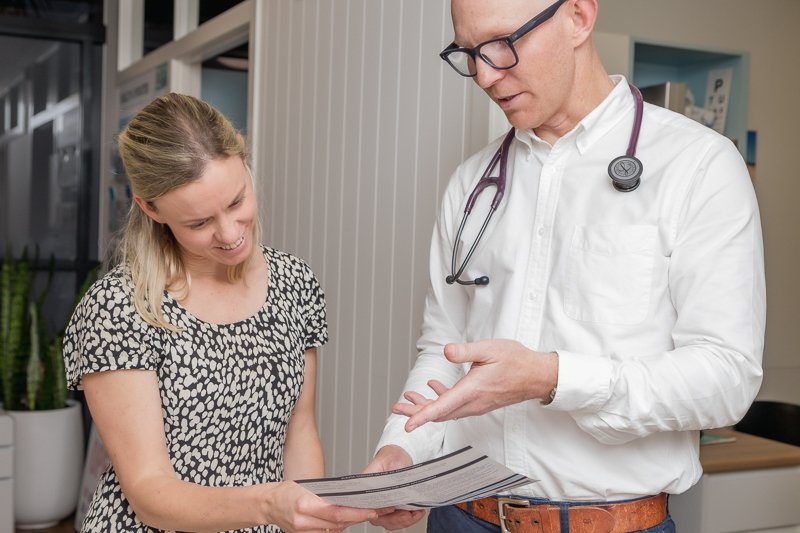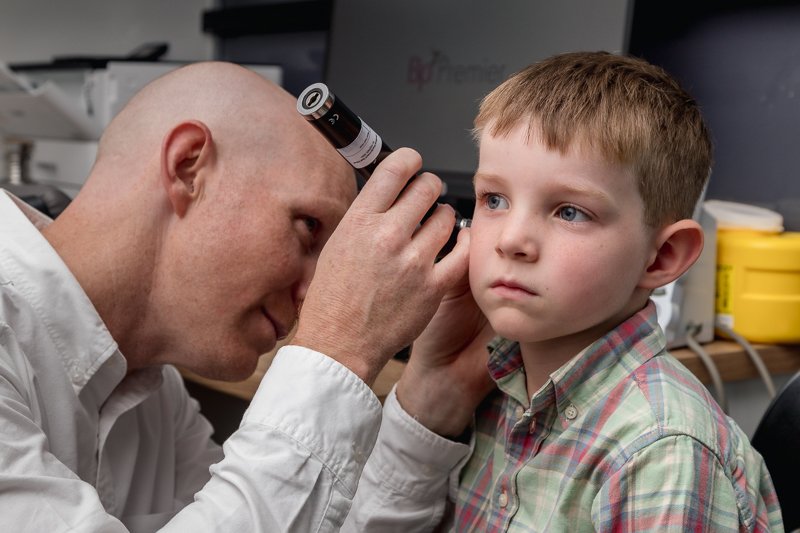About 6 million adult Australians – that’s about one in three of us – have high blood pressure. And many people do not have a treatment plan in place.
Your regular health needs haven’t gone away just because COVID-19 has arrived. But how do you look after your general health – including managing any chronic conditions – during a global pandemic? It’s a really important question.
As GPs, we’re obviously very concerned about stopping the spread of COVID-19. Unlike other illnesses though, COVID-19 can harm the health of people who don’t have it. That’s because the social distancing measures designed to slow the spread of COVID-19 may also discourage people with chronic conditions or other illnesses from getting the care they need.
Staying Healthy During the Pandemic
We certainly hope you don’t catch COVID-19. Neither do we want you to come down with any other illness, or lose control of a chronic condition during this time. Here’s how you can help yourself stay well over the coming months.
Wash Your Hands
Clean hands help stop the spread of infections. Washing your hands thoroughly and often with soap and water makes it less likely that you’ll transfer the coronavirus from your hands into your body. It also makes it less likely that you’ll get exposed to other viruses or bacteria that can cause gastroenteritis, common colds and a number of other unpleasant viruses or infections.
Wash your hands for at least 20 seconds using soap and water. Make sure you scrub every part of your hands – between your fingers, around the base of your thumb, your palm, wrist and the back of your hands. It’s a simple and surprisingly effective way to protect your health.
Get an Influenza Vaccination
It’s important to get your flu jab, ideally in April or May so that you’re protected during peak flu season. The flu vaccine is free for some groups including people with chronic conditions or those over the age of 65, while everyone else pays a small fee for it.[1]
The Queensland government encourages everyone to get a flu vaccine. It won’t protect you from the coronavirus but it will reduce your risk of getting influenza, which is a very unpleasant respiratory illness that can have serious, even fatal, complications.
Please call us on 5471 2000 to arrange your flu jab. We are seeing people as soon as possible for their vaccinations but there is large demand this year and supplies from Government and Commercial stockpiles remain an issue. We are running out of hours ‘Flu vaccine clinics’ to get through demand.
Get Other Vaccinations
There is a schedule of routine vaccinations recommended for children, adolescents, pregnant women and other at-risk individuals. These protect you and your wider community against diseases like Pertussis, Pneumococcal Pneumonia, Diphtheria and Measles, which were once feared just as we fear COVID-19 now.
If you or your kids are due for a vaccination, then please call us to make an appointment. We’re following all the social distancing guidelines and other protocols to protect you and us. Childhood vaccination appointments are being grouped away from potentially unwell people via the timing of sessions and cleaning schedules.
Manage Chronic Conditions Well
Do you have asthma, diabetes, cancer, cardiovascular disease, chronic obstructive pulmonary disease, arthritis, back pain or a mental health condition? The Australian Institute of Health and Welfare tells us that these 8 chronic conditions account for 37% of hospitalisations and 87% of deaths in Australia.
If you live with one or more of these conditions, it’s vital that you maintain your normal care during the COVID-19 pandemic. You’re already at higher risk of contracting COVID-19 or developing a number of other health complications.
Please keep your appointments. This will likely be via Telehealth initially, but we are able to see people in person if your GP deems it necessary. We don’t want your health to worsen and we don’t want you to end up in hospital unnecessarily when the beds are needed for COVID-19 patients.
We’re here to help you follow or adjust your treatment plan, to liaise with any specialists you see and help you cope. We can do a great deal of this through telehealth, meaning you don’t need to come to the clinic.
Do Screening Tests When Called
Again, if you’re due for cervical screening, antenatal screening or another screening test, please discuss this with your GP. Some screening can wait, some cannot. It’s always better to identify any disease in its early stages when treatment is more likely to succeed.
Manage Your Mental Health
In the last month, your whole world changed. You may now be dealing with financial worries, job insecurity, social distancing, homeschooling, and missing time with people you love. Many of the rhythms and activities that support your mental health aren’t possible because you have to stay at home.
It’s OK to find this time challenging – it is! That’s true for everyone but all the more so if you already live with anxiety or depression.
You can look after your mental health by trying to create a daily routine to bring structure to your day, going outside for a walk in your local area, staying in touch with loved ones and sharing your feelings. We’re here for you too. Please make an appointment if you need support.
Do Some Daily Exercise
Your activity levels may have taken a nosedive once you started spending more time at home. You’re no longer walking to the station or to school. You’re not able to go to the gym. And you know that walking from the sofa to the fridge and back tends to add more calories than it burns…
Try to do some exercise every day. That could be a walk, a bike ride, a run, some gardening, a YouTube workout session or some yoga on your lawn. Exercise is great for your immune system, mood, energy levels, sleep and sense of achievement.
How Peregian Family Medical Centre Can Help
We’re still here for you at Peregian Family Medical Centre. You’ll see that we’ve changed the way our practice runs to protect both patients and staff. We’re treating many patients over the telephone (you can book these appointments online). Sometimes during the phone call, it’ll become clear that we need to see you in person so we’ll arrange a time and explain the process.
Some of these things may seem off-putting, but they’re not intended to be. The aim is to ensure you can still get the help you need from our doctors despite the restrictions caused by the coronavirus. Stay safe, stay well – and stay in touch.






